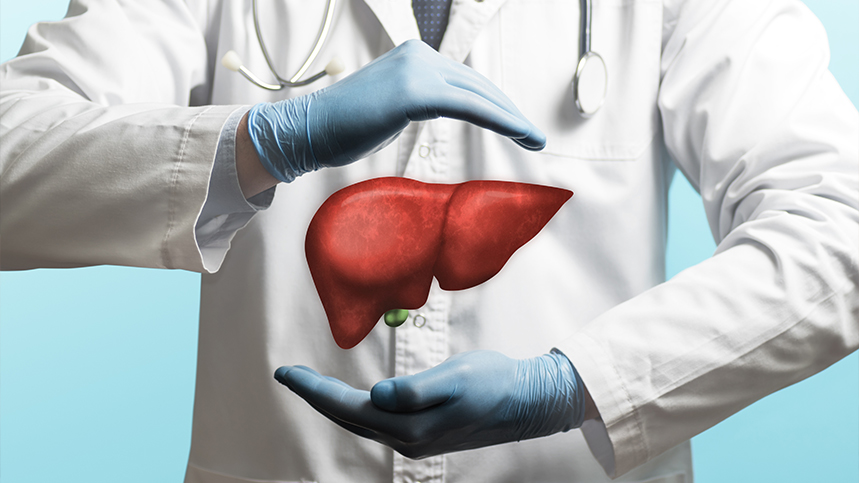
Don't Let Fever Bring You Down
Get Yourself Tested With AMPATH
Hepatocellular carcinoma (HCC) is a type of liver cancer that usually affects individuals with preexisting liver disease. It is the sixth most common cancer worldwide and the third leading cause of cancer-related deaths. Early diagnosis and accurate staging play crucial roles in the management and treatment of HCC.
Screening and Diagnosis
Early detection of HCC is vital for successful treatment. People who are at risk for developing liver cancer are recommended to undergo routine screening, which may include liver function tests, ultrasounds, and alpha-fetoprotein (AFP) tests. If a suspicious mass or lesion is found, further testing is necessary to confirm the diagnosis. Imaging techniques such as CT scans and MRIs are commonly used to evaluate the size and location of the tumor.
Biopsy
A tissue biopsy is often done to confirm the diagnosis of HCC. A small sample of the liver tissue is extracted using a needle or during a laparoscopic surgery. The tissue is then examined under a microscope to determine whether it contains cancerous cells.
Staging
Staging is the process of determining the extent and spread of the tumor. It helps doctors determine the best treatment options for a patient. There are several staging systems used for HCC, but the Barcelona Clinic Liver Cancer (BCLC) staging system is the most commonly used. The BCLC system takes into account the size of the tumor, the number of tumors, the severity of liver cirrhosis, the presence of symptoms, and the overall performance status of the patient.
Treatment
The treatment options for HCC depend on the stage of the disease. Surgery is often the preferred option for patients with early-stage HCC. Liver transplant may also be an option for eligible patients. For those with advanced HCC, treatments such as chemotherapy, radiation therapy, and targeted drug therapy may be recommended. Palliative care can help manage symptoms and improve quality of life.
Prognosis and Monitoring
HCC prognosis varies depending on the stage of the disease. The 5-year survival rate for HCC ranges from 15% to 40%. Regular monitoring of the tumor is needed to evaluate treatment effectiveness and to detect any new or recurring tumors. Imaging tests and AFP tests are often used to assess the response to treatment and to monitor disease progression.
Conclusion
Hepatocellular carcinoma is a serious condition that requires prompt diagnosis and accurate staging. Regular screening in at-risk patients can help detect the disease at an early stage. Biopsy is necessary to confirm the diagnosis and staging helps determine the best course of treatment. Treatment options range from surgery to palliative care depending on the stage of the disease. Monitoring is necessary to ensure the effectiveness of treatment and to detect any new growths. Early detection and treatment can significantly improve the chances of survival and overall quality of life.
Understanding Hepatocellular Carcinoma: Diagnosis and Staging
Hepatocellular carcinoma (HCC) is a type of liver cancer that usually affects individuals...
30-11-2023
Protecting Your Skin: Vital Tips for Sun Safety and Self-Examinations
Summer is here, and we all are ready to soak up some sunshine after long and dreary winter...
30-11-2023
Preventing Liver Cancer: The Role of Hepatitis Vaccination
Liver cancer is a deadly disease that affects millions of people worldwide. While there...
30-11-2023
Subscription Subscribe to our newsletter and receive a selection of cool articles every weeks
Recent Blogs
Understanding Hepatocellular Carcinoma: Diagnosis and Staging
Hepatocellular carcinoma (HCC) is a type of liver cancer that usually affects individuals...
30-11-2023
Protecting Your Skin: Vital Tips for Sun Safety and Self-Examinations
Summer is here, and we all are ready to soak up some sunshine after long and dreary winter...
30-11-2023
Preventing Liver Cancer: The Role of Hepatitis Vaccination
Liver cancer is a deadly disease that affects millions of people worldwide. While there...
30-11-2023







 Get 15% OFF on 1st order above ₹100 Use code:
Get 15% OFF on 1st order above ₹100 Use code: 